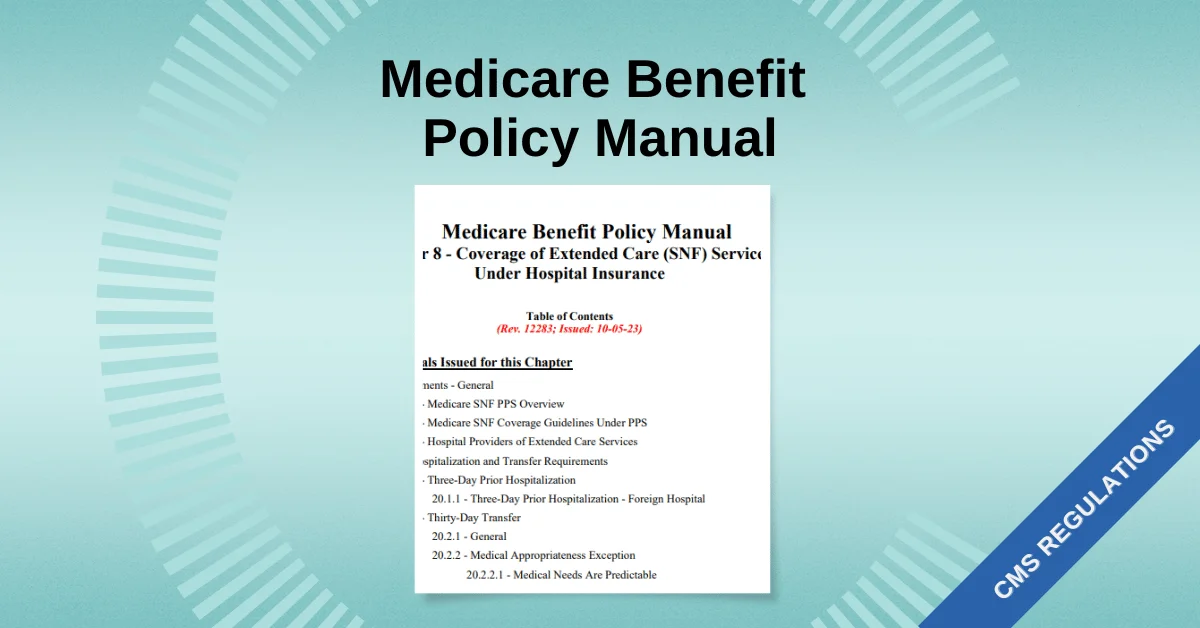GAINING CLARITY: Success in the evolving Medicare Advantage market hinges on understanding the intricacies of managed care contracting and building strong relationships with managed care payers. This Clarity Guide offers post-acute providers key insights into the MA world and strategies for effective managed care contracting.
Medicare Advantage (MA) plans have become a significant component of the payer landscape, especially for post-acute care providers in skilled nursing facilities and home health agencies. Understanding the intricacies of Medicare Advantage and the process of managed care contracting is crucial for these providers to ensure seamless care delivery and optimal managed care reimbursement.
What is Medicare Advantage?
Medicare Advantage (Medicare Part C) is an alternative to Original Medicare (Parts A and B), offered by private insurance companies like Humana, UnitedHealthcare, and Aetna. These plans provide all Original Medicare benefits often with additional services such as dental, vision, prescription drug coverage, and wellness programs.
Key Differences from Traditional Medicare
Coverage and Benefits: MA plans often offer extra benefits not covered by traditional Medicare.
Network-Based Care: These plans typically operate within specific networks, affecting in-network and out-of-network care and reimbursement.
Billing and Payments: Reimbursement rates and payment structures differ, with potentially more administrative demands.
Case Management: Requires adherence to more stringent utilization and case management protocols.
Capitated Payment Structure: MA plans receive fixed payments per enrollee from Medicare, incentivizing cost management.
Medicare Advantage for Post Acute Providers
So how do Medicare Advantage payers work with post acute providers? There are a number of differences from traditional Medicare.
MA Plans Manage Care: Unlike Original Medicare, where you largely bill the government directly, MA plans act as middlemen. They set their own rules for:
- Network Participation: You need to be in-network for the MA plan to get paid for most services (except emergencies).
- Pre-Authorization: Often stricter and more frequent than Original Medicare, requiring approval before you provide certain care.
- Payment Rates: They negotiate their own rates with providers, which can be lower than Original Medicare.
Medicare Advantage Impacts for Post Acute Providers
When developing agreements with managed care payers, consider how the MA patients may impact your center:
- Patient Mix: MA enrollment is growing rapidly, meaning more potential residents BUT more reliance on navigating these managed care plans and their rules.
- Revenue: Lower rates are common, BUT you might get more consistent patient volume if you are in-network.
- Administrative Burden: Medicare Advantage plans usually bring more paperwork through pre-authorizations and potential appeals.
- Quality Metrics and Star Ratings: MA payers may put more emphasis on your facility meeting the quality metrics they require.
- Utilization Management: Be prepared for MA plans to focus on shorter lengths of stay and cost control.
- Patient Experience: Pay attention to how MA plans affect patient satisfaction and your facility’s reputation
When Does Medicare Advantage Make Sense?
Every post acute provider has their own local market, expertise and strategy. When and how to work with managed care patients is an individual decision for the skilled nursing center. Some factors typically used to decide include:
1. Local Market Analysis:
- MA Penetration: What percentage of seniors in your area are on MA vs. Original Medicare? High MA means you will need to work with managed care payers.
- Plan Landscape: Which plans are dominant? What are their reputations for provider relations and payments?
- Competitor Strategy: Are other SNFs in your area heavily reliant on MA, or do they mainly focus on Original Medicare?
2. Your Facility’s Strengths:
- Specializations: Do you offer unique services that MA plans value (rehab, complex care), that might give you more leverage for better rates?
- Quality Measures: Strong star ratings and performance data can make you more attractive to MA plans and improve contract terms.
- Administrative Capacity: Do you have the staff and systems to handle the workflow and documentation demands of managed care?
3. Financial Implications:
- Rate Analysis: Carefully compare MA plan rates to your costs and Original Medicare reimbursements.
- Volume vs. Rate: Will a higher patient volume from MA offset potentially lower rates per patient?
- Contract Negotiation Skills: Are you prepared to negotiate strong contracts with MA plans, or do you need help?
- Payment Speed: Evaluate the payment speed of different MA plans. Some may pay more quickly than Original Medicare, improving your cash flow.
When and how post acute providers work with Medicare Advantage payers is a critical strategic choice. Find experienced experts to guide your process and implement the tools that help you succeed in managed care.
Learn More About Managed Care Contracting
Check out these additional Clarity Guides or evaluate your Medicare Advantage rates and contracts with Payer Clariti software.
Stay current with CMS rules and regulations that apply to Medicare Advantage payers and read about the latest news to see what’s coming for managed care in post acute.




